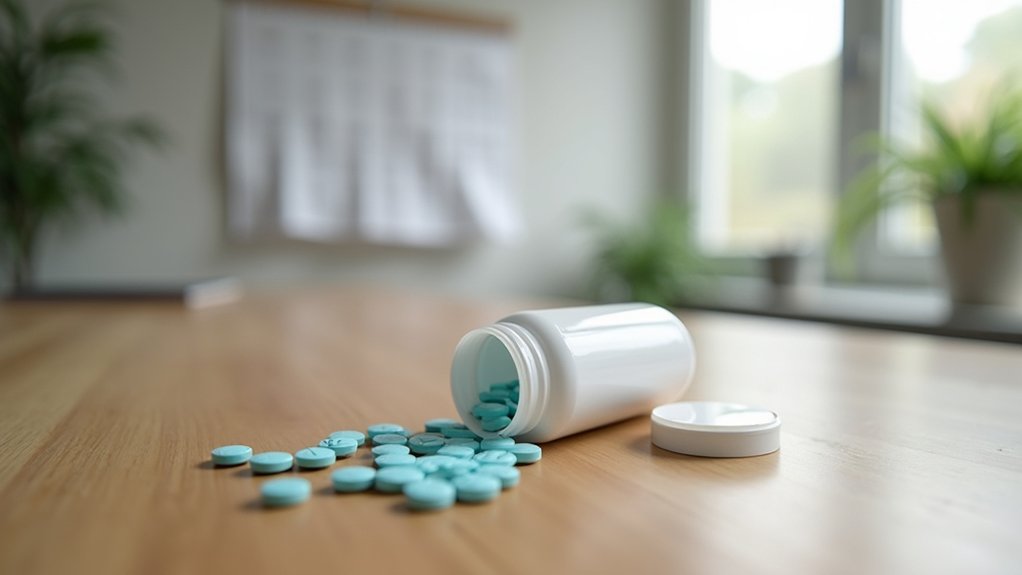How to Deal with Peer Pressure in Recovery
Teenagers aren’t the only ones who face peer pressure. Adult peer pressure is a real thing that is arguably more influential than child or adolescent peer pressure. Most concerningly, it’s often more pronounced when you’re trying to quit. Thus it is all the more vital to learn how to deal with adult peer pressure in rehab. Here’s everything you need to know about the influences, struggles, and methods to rise above the challenges presented in recovery.
The 4 Types of Peer Pressure
There are four classifications of peer pressure adults face. All kinds of those influences fall under the following types of peer pressure.
Straightforward Peer Pressure
Straightforward pressure is direct pressure that is impressed upon you by either direct offering or aggressive suggestions or insistence. This consists of various factors, including slander, antagonizing, or bullying if you do not indulge. This is arguably the most difficult pressure as it can make an individual feel obligated to be involved in drugs or alcohol. In such cases, it’s important to remember the choice is always yours even if you don’t feel like it.
Passive Pressure
Passive peer pressure is an indirect type of peer pressure where you’re not directly offered or oppressed by an individual to partake in substances. Instead, passive adult peer pressure manifests itself by being in social settings that encourage substance abuse. That means being in an environment where the temptation of drugs and alcohol is ever-present and not discouraged. Exposure to this influence is equally dangerous as direct peer pressure if not more so because the choice is always yours.
Personal Pressure
Personal pressure is the duress you place on yourself mentally and physically. These self-inflicted strains consist of failure to live up to your expectations. These expectations are often based on internalized pressure through using your peers as a measuring stick for your recovery success. It’s important to understand that everybody progresses at a different rate depending on several individual variables. Just because you or somebody else is farther along in recovery, does not mean your rehab is not working. On the contrary, those farther behind other’s progress have often accomplished more because their struggles stem from deeper addiction severity.
Group Peer Pressure
Group pressure is exactly what the name suggests. It involves a group of individuals attempting to convince you to follow their practices or behaviors. When influences come upon you in greater numbers such is the case in group pressure, the potential to cave intensifies. It is important during these instances to assess whether these social situations or individuals align with your long-term plans or goals. If the answer is no, then so should your response be to their influences.

What is Unspoken Peer Pressure in Recovery?
Unspoken pressures refer to the subtle, but ‘unspoken’ influences of your environment. For example, any environment or social setting where alcohol or drug use is an expected or assumed action. In these passive instances, you may not even be directly offered or coerced, rather than expected to partake. These external influences are arguably more dangerous than being offered the opportunity outright. This is a primary example of why it is important to change your lifestyle to achieve lasting sobriety. Our specialists can help you alter your habits, impulses, and lifestyle choices en route to helping you discover the new and happier you.
How Does Adult Peer Pressure Impact Your Recovery?
Obviously, adult peer pressure has a profound impact on rehab efficacy. The following details clarify specific areas of recovery impacted by those influences.

Conflicting Desires
Your rehab specialist strives to replace your addictive desires with new enjoyable activities and habits. However, these desires become more conflicted thanks to peer pressures you face from external influences. As long as these internal conflicts are present, recovery becomes increasingly difficult, extending rehab duration. Immersive Recovery’s alcohol and drug programs for men provide all the training and implementation processes to ensure your addictive desires are a thing of the past.
Increased Relapse Probability
There’s negative and positive peer pressure. Negative peer pressure encourages using drugs and alcohol, increasing the likelihood of relapse. Without altering lifestyles and influences, relapse will be a persistent loop that you struggle to shake from your recovery cycle. This trickles down into discouragement and depression which can worsen your dependency. You don’t have to let peer pressure and relapse cycles dictate your life. We can help you break these cycles with our state-of-the-art treatment approach to rehab.
Peer Pressure Makes Sobriety a Daily Struggle
Even after you’ve surrounded yourself with sobriety-friendly influences and circumstances, peer pressure makes sobriety a daily battle. This means that even after you achieve independent sobriety by completing an addiction program, sobriety is a daily battle. Our empathetic treatment specialists help this mentality become etched into your mind to help you always have your guard up against relapse. That is to say, even when sobriety is achieved, you have to remain vigilant to maintain your happy sober life.
How to Say ‘No’ to Peer Pressure
Adults say no to peer pressure more so in their actions than their words. The following ways you can say no to adult peer pressure sheds clarity on what exactly that means.
Stop Going to Substance-Friendly Environments
One of the best ways to say no to peer pressure is to avoid social settings that encourage substance use activities. For example, individuals trying to curb a drinking habit should not go to a bar to hang out with friends. Doing so enables the opportunity to indulge in a drinking addiction no matter what your intentions may be. Instead, opt to spend more time around family, friends, and atmospheres that aid your recovery efforts.
Take a Firm Stand
Circumstantial and friendship influences can make you feel obligated to partake in activities you wouldn’t otherwise do. Whenever that persuasion is impressed upon you, remember, that the decision is ultimately yours. Therefore, when these temptations arise, take ownership of the situation and take a firm stand on resisting these temptations. You’ll be surprised how strong you are simply by exercising that strong two-letter word of “no”.
Remove Friendships that Encourage Addiction Habits
Another way you can say no to peer pressure with your actions rather than words is to remove those influences from your life. This is often the most difficult since you develop strong bonds with individuals who fuel these addictive habits. As hard as it may be, bear in mind that people who truly care will make your well-being a priority. This would include family and friends who worry about your struggles with addiction.
Remember the Consequences
Many fall victim to repetitive drug and alcohol use by reacting impulsively without considering the consequences. Therefore, before you say yes to peer pressure, consider the potential consequences and aftereffects. These consequences include the potential destruction of relationships, overdose potential, depression, mental health effects, financial ruin, and more. Taking the consequences into account before indulgence can be a game-changer in helping you say no to drugs and alcohol.
Adopt a Full-Proof Support System
The best way to establish a strong support system is to seek refuge in your loved ones or confide in therapists you can trust. This means being open with them about your struggles and concerns with your addiction. A support team should be made up of individuals you can go to at any time when the thought of relapse pops into your mind. Bear in mind, that the only proper way to implement a strong support structure is to do so with the administration of a trained professional.
Maintain Your Focus on Your Recovery Goals
There are several measures you can take to help you maintain your focus on your recovery goals. These methods consist of keeping a recovery goal and progress journal, consistently attending treatment sessions, and other similar focus methods. Most importantly, mentally reminding yourself of your goals throughout the day is a vital part of helping you keep your focus on your recovery. The best way to prepare yourself mentally for maintaining your sobriety goals is to get the proper training from a medical professional. This way, this focus is naturally engrained into your thought patterns so you can thrive at every stage of recovery.
Overcome Peer Pressure From a Holistic Standpoint
The Holistic treatment approach at Immersive Recovery has revolutionized how people tackle their addiction. Through specialized teaching methods, our treatment experts train you to take control of your mind, body, and soul. These methods give you complete control of your thought processes and reinforce your mental fortitude through a variety of practices. These practices include but are not limited to meditation, proactive activities, positive thought training, and other similar practices. These methods are reported to be a journey of self-discovery and spiritual enlightenment.

Reclaim Your Authenticity and Thrive in Recovery
Immersive Recovery gives you every opportunity to do more than meet your recovery goals. It allows you to exceed them and thrive in recovery with our unparalleled treatment approach and unrivaled therapy experts. Together we can help you reclaim your authenticity and reach for the stars of your boundless potential in recovery and beyond. Reach out now to begin your journey toward achieving your deepest sobriety and life dreams today.





